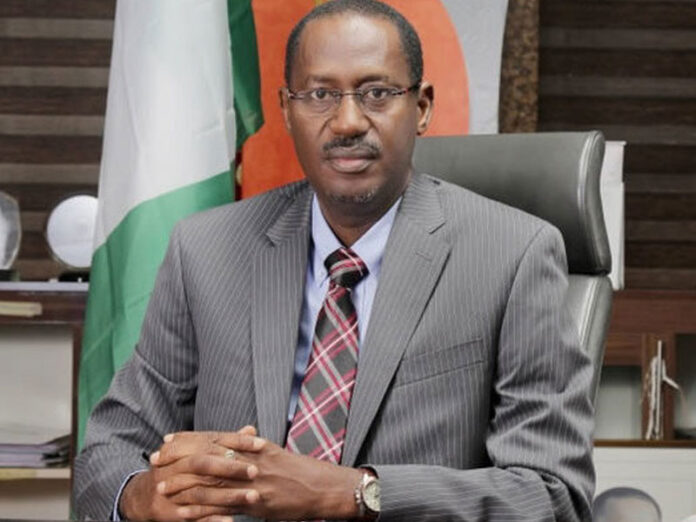Chigozie Amadi
Nigeria’s Minister of Housing and Urban Development, Mr Ahmed Dangiwa, yesterday chaired the first session of the 2024 executive board meeting of the United Nations Human Settlements Programme, with a pledge to forge strategic alliances.
A statement by the Special Assistant, Media & Strategy, to the minister, Mark Chieshe, said the first session commenced in Nairobi, Kenya, and is being held at the UN-Habitat headquarters from May 6 to 8.
In his opening remarks at the meeting, Dangiwa tasked members of the executive board of UN-Habitat to redouble efforts towards repositioning the organisation as an impactful global tool for tackling human settlements’ challenges in a structured and sustainable manner.
As members of the executive board, he drew their attention to the fact that their nations, at this time, are among the privileged few tasked with the important responsibility for the regular supervision of the global human settlements agenda.
The minister, who also doubles as the chair of the 2023 Annual General Meeting (AGM) Bureau of the Shelter Afrique Development Bank (ShafDB), noted that he sees his unique positions as an opportunity to forge strategic alliances that are beneficial to actualising the mandate of UN-Habitat.
“We have a moral obligation to approach this duty with our best efforts, utmost sincerity, and the highest responsibility for the good of mankind. “To this end, during my chairmanship, I intend to pursue global collaboration in partnership with the various regional and political groups, and I would count on your support as I look forward to active engagement to bring this organisation to its rightful footing.
“I do not count it a coincidence that as the Minister of Housing and Urban Development of the most populous country in Africa, I also Chair the AGM Bureau of Shelter Afrique Development Bank, and I now Chair the Executive Board of the United Nations Human Settlements Programme.
“ I see these strategic alignments as a call to maximise the opportunities my current positions afford me to promote more beneficial global collaborations, more international attention, and hopefully, more funding for UN-Habitat,” he noted.
The UN-Habitat Executive Board is a legislative body of UN-Habitat. It comprises 36 member states elected by the UN-Habitat Assembly with 10 seats for Africa, one of which is occupied by Nigeria currently producing the chair.
In addition, there are eight seats for Asia and Pacific States, four seats for Eastern European States, six seats for Latin America and Caribbean States, and eight seats for Western European and other States.
Nigeria has been a member of the executive board since 2019 and was granted a renewed term of two years in 2023 until 2025.
The body convenes three times a year to oversee the implementation of the normative and operational activities of UN-Habitat, ensure accountability, transparency, efficiency, and effectiveness, approve and oversee the implementation of the annual programme of work and budget of the organization.
Notable issues slated for discussion at the first session of the 2024 board meeting include financial, budgetary, and administrative matters, including the implementation of the resource mobilisation strategy in accordance with the strategic plan for the period 2020–2025.
It will also include actions by UN- Habitat to address geographical and gender imbalances in the composition of its staff; updates on the draft work programme of UN-Habitat and the draft budget of the United Nations Habitat and Human Settlements Foundation for 2025.
In addition, it will examine progress on the strategic plan of UN-Habitat for the period 2026–2029, and implementation of the normative and operational activities of UN-Habitat, including reporting on its programmatic activities in 2023 and the implementation of sub-programmes, flagship programmes, and technical cooperation activities.
The meeting will also review the implementation of the United Nations development system reform in UN-Habitat and actions taken by UN-Habitat to strengthen protection against sexual and any other type of exploitation and abuse and against sexual harassment in the workplace.
The opening session had in attendance representatives of the 36-member countries and the Cabinet Secretary for Lands, Public Works, Housing and Urban Development of Kenya, Hon. Alice Wahome who welcomed the members on behalf of the Kenyan President, William Ruto.























